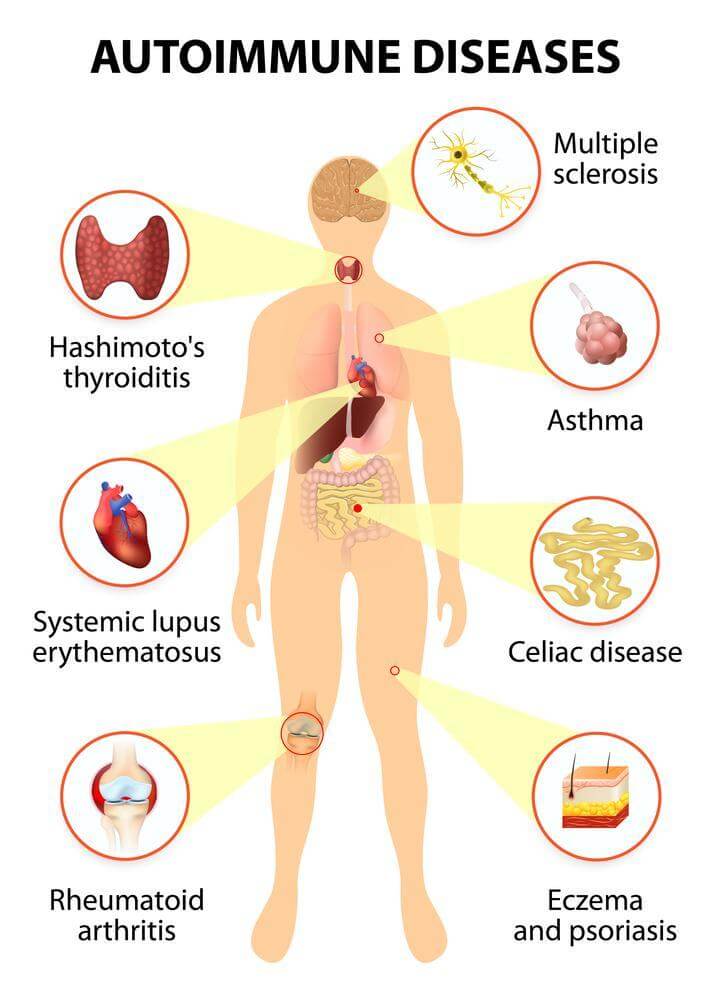Autoimmune Disease Basics
Autoimmune disease happens when the body’s natural defense system can’t tell the difference between your own cells and foreign cells, causing the body to mistakenly attack normal cells. There are more than 80 types of autoimmune diseases that affect a wide range of body parts.
Common autoimmune diseases in women include:
- Rheumatoid arthritis, a form of arthritis that attacks the joints
- Psoriasis, a condition marked by thick, scaly patches of skin
- Psoriatic arthritis, a type of arthritis affecting some people with psoriasis
- Lupus, a disease that damages areas of the body that include joints, skin and organs
- Thyroid diseases, including Graves’ disease, where the body makes too much thyroid hormone (hyperthyroidism)
- Hashimoto’s thyroiditis, where it doesn’t make enough (hypothyroidism) of the hormone
- Type 1 diabetes, a condition in which the immune system damages the insulin-producing cells in the pancreas
Symptoms of autoimmune disease may be severe in some people and mild in others, there are also different degrees of autoimmune disease. The symptoms a person gets may be related to multiple factors that include genetics, environment and personal health.
Common Autoimmune Disease Symptoms
Despite the varying types of autoimmune diseases, many of them share similar symptoms. Common symptoms of autoimmune disease include:
- Fatigue
- Joint pain and swelling
- Skin problems
- Abdominal pain or digestive issues
- Recurring fever
- Swollen glands
Autoimmune Disease Risk Factors
Researchers don’t know what causes autoimmune disease, but several theories point to an overactive immune system attacking the body after an infection or injury. We do know that certain risk factors increase the chances of developing autoimmune disorders, including:
- Genetics: Certain disorders such as lupus and multiple sclerosis (MS) tend to run in families. Having a relative with an autoimmune disease increases your risk, but it doesn’t mean you will develop the disease.
- Weight: Being overweight or obese raises your risk of developing rheumatoid arthritis or psoriatic arthritis. This could be because more weight puts greater stress on the joints or because fat tissue makes substances that encourage inflammation.
- Smoking: Research has linked smoking to a number of autoimmune diseases, including lupus, rheumatoid arthritis, hyperthyroidism and MS.
- Certain medications: Certain blood pressure medications or antibiotics can trigger drug-induced lupus, which is often a more benign form of lupus. It has also been discovered that specific medications used to lower cholesterol, called statins, can trigger statin-induced myopathy. Myopathy is a rare autoimmune disease that causes muscle weakness. Before starting or stopping any medications, however, make sure to talk to your doctor.
